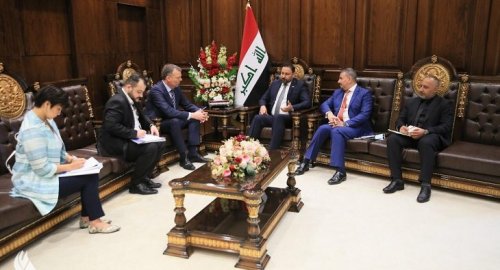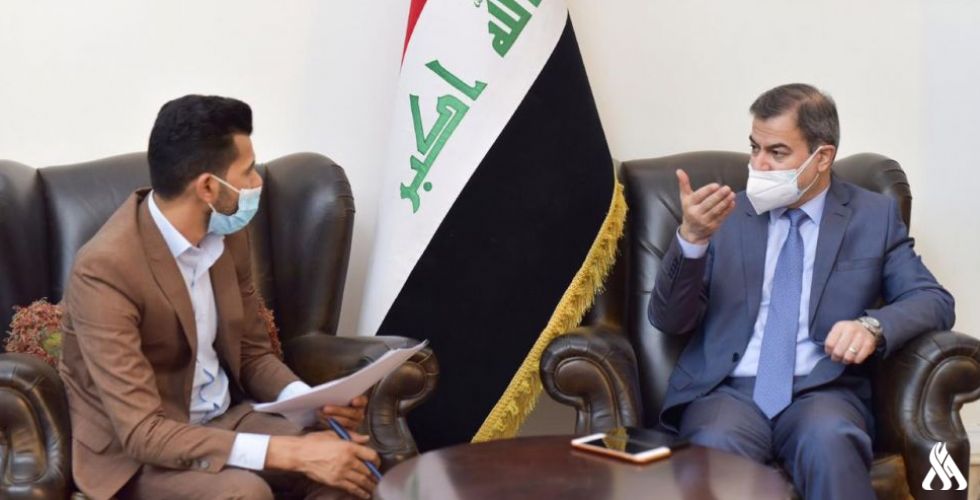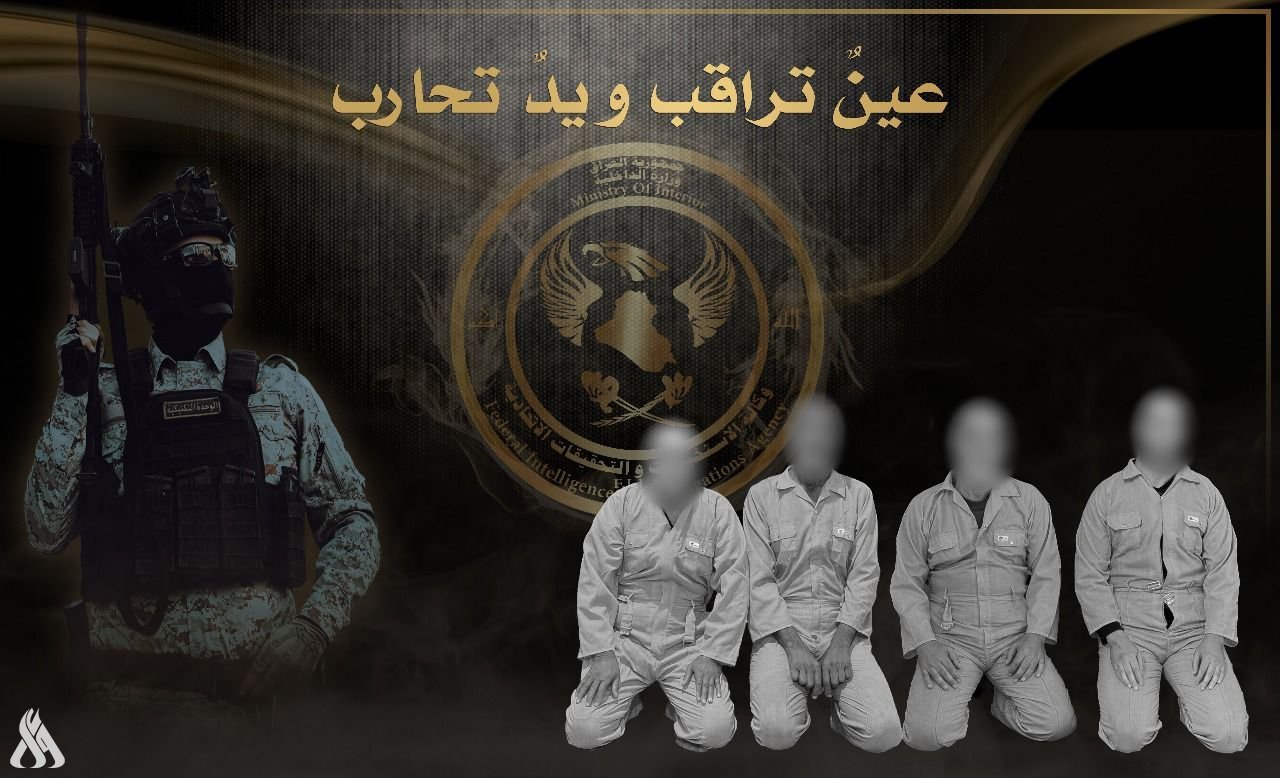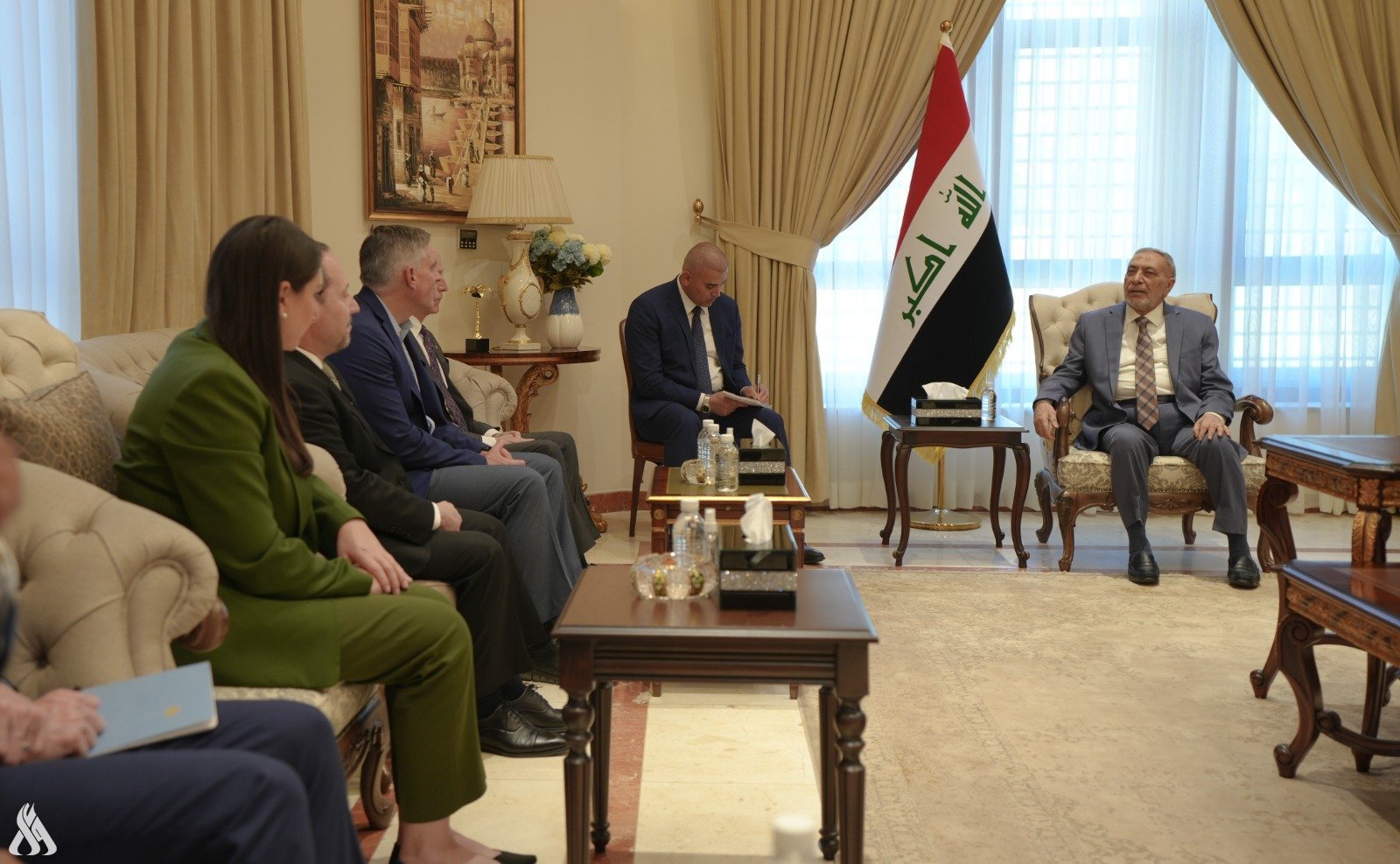
Al-Kaabi calls for resolving the missing and mass graves cases

- 14-06-2021, 16:23
INA – Baghdad
Iraqi Parliament First Deputy Speaker Hassan Al-Kaabi, called for speeding up the resolutions of the missing persons and mass graves cases, considering it a humanitarian and legal issue, while stressing that the presence of more than one party working on the missing file has caused completion delays.
Al-Kaabi received in his office on Monday, the delegation of the International Commission on Missing Persons (ICMP), which includes the head of the Iraq Program, Alexander Hogg, the deputy head of the Iraq office, Fawaz Abbas, and the legal advisor to the Committee, Dinara Dardosovo, according to a statement issued by the office of the First Deputy Speaker, received by Iraqi News Agency – INA.
Al-Kaabi praised the carried out humanitarian activities by the committee inside Iraq, especially after signing recent memorandums of understanding, pointing out that "the presence of experts who have the ability and competence, contributed to the completion of many tasks in our country, which is one of the most suffering countries in the world in terms of the number of missing persons as a result of what is witnessed by wars, conflicts and crimes committed by ISIS terrorist gangs,”
“There are efforts to unify the works of the authorities concerned with the file of the missing and mass graves," he noted, adding "this file is being worked on by several bodies, such as the Ministries of the Interior, Defense, Health, the Martyrs Foundation / Department of Mass Graves, Justice, the Regional Government and the Human Rights Commission, in a manner that resulted in delays and the creation of a prolonged routine,”
He explained out that in order to bypass all these intersections, a single department must be established to deal exclusively with the file and granting wide ranged authentications as to work in coordination with the mentioned authorities according to specialization, stressing that “everyone should look at the matter from a humanitarian side only, and that the people have the right to know the fate of their missing relatives,”
Duhok of Iraq and Qadsia of Kuwait match kicks off
- Sport
- 25/04/15
Four Daesh terrorists detained in Salahuddin
- Security
- 25/04/14
Two ISIS hideouts destroyed, killing those inside in Salah al-Din
- Security
- 25/04/13












